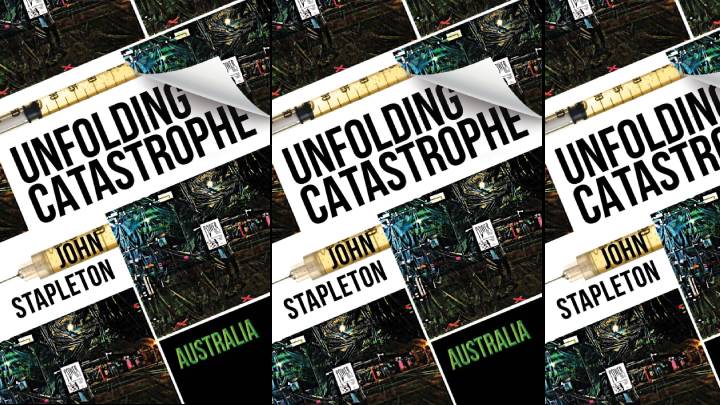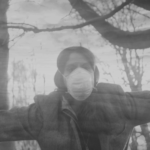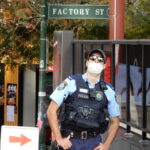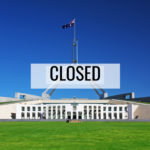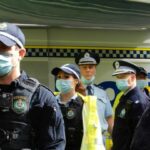Unfolding Catastrophe: Journalist John Stapleton on the Government’s COVID Response
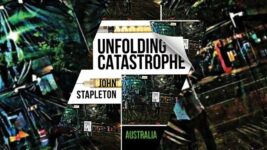
Tensions are high in the Sydney region as the population looks towards its tenth week in lockdown, without any clear understanding of when it will be coming out of the home confinement it’s enduring as cases of COVID-19 continue to soar within the community.
And as far as it goes with our political leaders, they don’t appear to have any clear understanding either. NSW premier Gladys Berejikilian has moved from consideration of easing restrictions at 50 percent adult vaccination rates one week, to the current estimate of 70 percent fully vaxxed.
As for the opinion of supreme leader Scott Morrison, anyone’s guess is as good as his. Indeed, at times it seems the prime minister believes the answer as to how to end the lockdowns is blowing in the wind.
Meanwhile, divisions within the general populace are deepening to levels not seen before this century, as there are those calling for lockdown to zero, while others are gathering on the streets to rally against lockdown restrictions.
A cautionary tale
Former Sydney journalist John Stapleton has spent the last 18 months researching and writing Unfolding Catastrophe: Australia, which is an account of how the federal and state governments have approached the COVID-19 pandemic, which he posits has been in a deranged manner.
Stapleton has drawn upon both journalistic and academic sources from around Australia and abroad to present a scathing account of how local authorities have turned the management of a disease into a highly politicised debacle.
Unfolding Catastrophe is delivered through the eyes of Old Alex. Living on the NSW south coast, he’s a retired journalist who conveys how the lockdowns are extinguishing many of the civil liberties Australians often take for granted and replacing them with increasing authoritarian rule.
“With Scott Morrison as Chief Architect, the Australian government had shamelessly scared the people into submission,” Old Alex laments towards the end of the book. “And the price would be paid in lives. And yet more suicides. And in a disfigurement which would last generations.”
Unfolding Catastrophe
Stapleton is one of the nation’s most experienced general news reporters. Starting as a freelancer back in the 1970s, he worked as a staff news reporter for the Sydney Morning Herald from 1986, before moving on to The Australian for a fifteen year stint that commenced in 1994.
These days, Stapleton lives much like the character of Old Alex down on the south coast, where he now runs online magazine A Sense of Place, along with a niche publishing company that goes by the same name.
Sydney Criminal Lawyers spoke to John Stapleton about why the lockdown response to COVID-19 has proven problematic, the impact the heavy-handed policing of the pandemic is having, and the viable route that he asserts will get the Australian public out of its current dilemma.
Unfolding Catastrophe: Australia has just been released this month. It analyses the response taken by the Australian government to the COVID-19 pandemic through the eyes of protagonist Old Alex, a retired reporter.
Old Alex is a literary device you’ve used to provide your own personal take on the “political, administrative and social derangement” that’s overtaken our nation since the onset of the pandemic in March 2020.
Broadly speaking, John, how would you say Australian authorities have handled the crisis?
There’s no way to sugar coat it. The handling of COVID has been an absolute disgrace on the part of the authorities.
Just look at the results – if anybody can keep track. What was it this weekend? Fifteen million Australians were in lockdown. Military are on the streets, there’s extremely over the top policing and hundreds of extremely punitive fines being issued every day.
And as this goes on day after day, you’re asking millions of people to accept the destruction of their lives and livelihoods, their freedoms and the massive harm that’s being done to the welfare of their children. I believe the whole mess will ultimately come completely unstuck.
The authorities knew – or should have known – from very early on that the data was clear, countries who implemented lockdowns did no better than countries who did not.
Indeed, the lockdown compounded any broader impacts the virus may have had by destroying tens – probably now hundreds – of thousands of businesses, and the welfare and the mental health of the entire population.
When the news of the pandemic and its accompanying lockdown reaches Old Alex in the suburb of Oak Flats – two hours south of Sydney – he finds that “potential friends became potential enemies just like that”.
So, how would you say the approach that government has taken to the COVID pandemic has translated within the community?
This area is a working-class area. Many of the residents did not finish high school and are essentially not literate in any sense. They might, and probably would, find such analysis insulting, but it’s the truth.
I told people from the very beginning that lockdowns don’t work and would never work, which was taken as just a mad old journo down the pub telling them this.
But experts from Oxford, Princeton, Stanford, Harvard and the rest were all saying that lockdowns were a mistake.
I would tell them that it wasn’t just me who thought like this, but some of the smartest people on the planet do – it all fell on deaf ears.
Like many others I couldn’t believe the willingness of people to comply with the blizzard of edicts coming out of government.
Now the tide has turned. People in this area are seeing for themselves the massive disruption in their own lives and in the lives of their friends and family.
For a long time, it all seemed to be happening somewhere else: down in Melbourne, “south of the border”, or up in Sydney – and “why would anyone want to go there, anyway”, is the attitude.
But there are no cases or virtually no cases in this area. Nobody knows anybody who has died.
Every pantomime of a press conference from Gladys, Chant and Hazzard is making them more hated. And people are absolutely fed up with not being able to visit friends or even go to work.
One of the major themes running through the book is how the response to the virus has seen policies set in place that have eroded citizens’ liberties and rights.
You assert that following the initial response to the first wave “governments did not give back the freedoms and liberties they had so unjustly seized under the threat of COVID”.
Can you elaborate on this?
Edward Snowden and other writers were warning more than a year ago that all the liberties being trampled on would not be handed back. And so, it has proved to be.
I can’t leave my own country. I can’t leave my state. I can’t even leave my local government area. And if I leave my house for more than two hours, or have a visitor over – or whatever – the neighbours are being encouraged to dob on me.
It’s a deranged madness and a derangement of authority, and I, along with many others, are heartily sick of it.
Another key issue to the handling of the pandemic has been the heavy-handed law enforcement approach. In NSW, this has meant the police commissioner is in charge of the entire operation.
What’s your take on how law enforcement agencies have handled the public during the crisis? And will it have consequences moving into the future?
Of course it will have consequences for the future. All of this has been done in secret, and in our name.
But we are not allowed to see the Treasury estimates on the cost of lockdowns. We’re not allowed to see the “medical” advice that’s being relied upon to implement these extreme lockdown measures.
Millions of people have been put under curfew in this country in the last 18 months, but we’re not allowed to see the medical advice or the reasoning behind it.
The decision-making could hardly be less transparent.
Similar to your protagonist, you worked as a journalist most of your adult life. Old Alex has an awareness of how the public can be manipulated by the media because of his time working within its ranks.
How would you say your career as a journalist working for some of the greatest mastheads in the country has shaped your perception of what’s transpired over the last year and half?
Like everybody else, I just find myself absolutely nonplussed that the situation has been allowed to deteriorate to this point: that this government hasn’t stepped back from the abyss but continues to lock up millions of its own citizens without – as is becoming increasingly clear – good cause.
The constant barrage of case numbers and alarmism through the mainstream media – heavily manipulated by or held hostage to government agendas – has played a diabolical role in creating a confused, frightened and bewildered population.
The devolution of the media and the de-education of the working class, combined with plummeting educational outcomes and some of the world’s worst internet, has created a malleable population.
But as the book and many commentators have noted, the mob is fickle and can turn on a dime. The government’s COVID narrative is coming unstuck, and they have no one else to blame but themselves.
What approach does Old Alex posit should have been taken to the pandemic?
One of the leading lights in the book is Ramesh Thakur, who is proposing this in his latest article in The Spectator. He has been a critic of lockdowns from the beginning and is far more eminently qualified than I am.
To escape the mousetrap, we should do the following:
Firstly, set a hard target date for vaccines to be offered to all adults, with the date to shift if – but only if – the vaccine rollout hits a roadblock.
We should proclaim in advance the end of all restrictions throughout Australia on that date. Those fully vaccinated are better protected against infections and, if infected, against severity of illness.
So, those who have chosen not to be vaccinated are solely responsible for their decision and its consequences for their own health, but no more likely than the vaccinated to spread the virus.
Further, we should announce that based on everything we now know about transmissibility and breakthrough infections, especially by new variants, that domestic vaccination certificates are pointless and will not be required for any purpose.
Similarly, there will be no compulsion as a condition of employment, with the possible exception of aged care facilities.
Testing and contact tracing should be terminated for asymptomatic people, as it sustains a state of fear without serving any useful medical purpose.
Clear and coherent guidelines should be issued on voluntary best practice personal hygiene and social interactions to reduce spread. This should include prompt testing with the onset of symptoms and isolation following clinical diagnosis.
We should loosen international travel but require rigorous protocols, including inexpensive and quick-results testing.
There needs to be investment in high-quality assessments of the efficacy of newly developed and repurposed early treatment drugs.
And lastly, invest in a substantial upgrade of the health, hospital and ICU infrastructure at the national level, with clear protocols for moving patients as required from infection hotspots to where there is spare capacity with guaranteed open state borders.
Lastly, John, for those locked down in the community right now, why would you say it’s an opportune time for them to read Unfolding Catastrophe: Australia?
Many, many hundreds of hours of work went into Unfolding Catastrophe: Australia. It encompasses the work of some of the country’s leading journalists and academics across the political spectrum.
It attempts to show what the much-sullied profession of journalism can do at its best, and that is to expose the truth, even – or most particularly – uncomfortable ones.
By all means, as you endure another month of purgatorial lockdowns, scan #plandemic and #scamdemic, and all the other countless stories now questioning the government’s ceaseless fearmongering.
As myself and others are now saying, no government in the future should ever be allowed to perpetrate this absolute debacle on a population: withdrawing the freedoms and liberties of the entire population and destroying people’s individual autonomy.
This situation is already blowing up and is already causing massive problems for police and security organisations.
Unless there is very radical change, it will only get worse.
